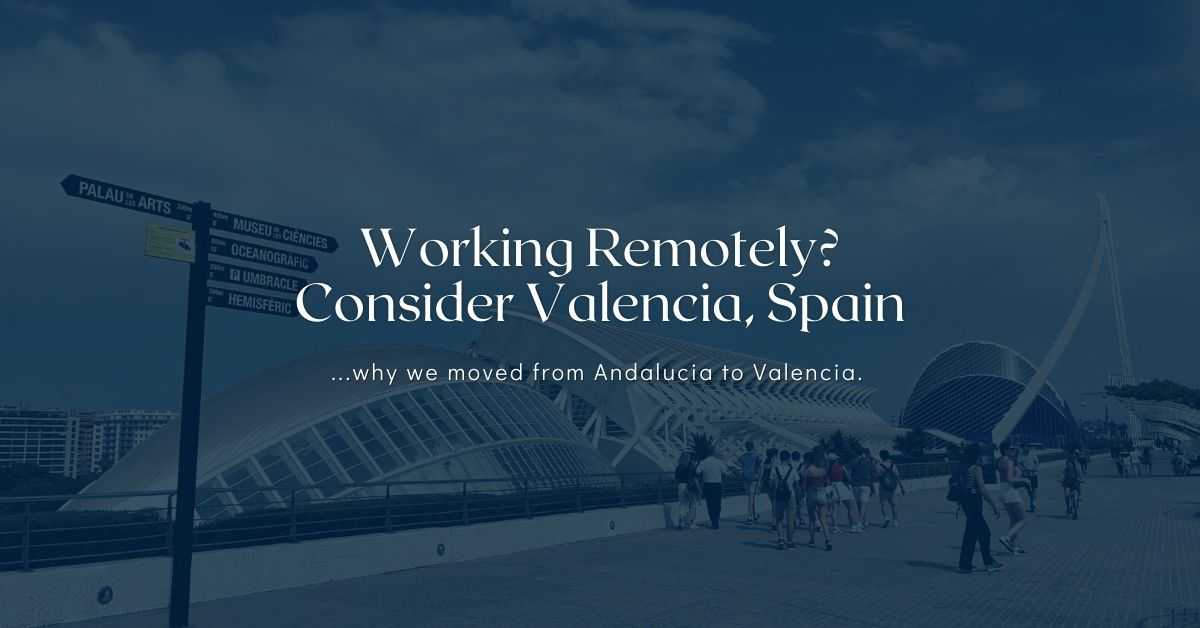
Working Remotely? Consider Valencia, Spain.
Due to recent events (Russia starting a war in Ukraine), many of our friends from Moldova and Ukraine are asking us various questions about Valencia and Spain, why we have decided to live here, what are our expenses, what is our life like, etc. I decided to write up an article that covers these topics - might be useful for others as well. If you’re a Ukrainian IT professional analyzing where to settle within the EU - consider strolling through this article.
I’m a remote worker / IT professional - so I’ll write things from my subjective experience and world-view. On my previous experiences and travels as a remote worker and digital nomad - I wrote in this article.
Why Spain?
Let’s start with the origins - we’re originally from Moldova - a tiny country in the East of the European continent. As our work revolved around IT projects, at some point we decided to try out a digital nomad life-style - we traveled around the world for a couple of years, visited various countries and cultures - all while working remotely on various IT projects and raising our own startup off the ground.
After a couple of years - we decided that we needed a change, we wanted to settle somewhere, find a city to call “Home” and everything that comes with it. Sure, we could still travel afterwards, but we’d always have a Home 🏙 to return to - but the question was “where?”.
I think one should be able to pick his (her) country he (she) wants to live in. Similar to how we pick our streaming service or e-commerce marketplace, the same way we have to be able to pick our country of residence (w/ or w/o citizenship) - after all, we’re generating a ton of taxes (similar to Amazon's Prime membership fee) - that pays for it all.
To be short, I view citizenship / residency like a paid membership.
Moldova - was not an option. Why? This country is the center of a geopolitical struggle between Russia and EU-US, and inherits all the issues that come with that struggle: insane levels of corruption (I’m sure most of our taxes were finding their way into someone’s corrupt pockets), language disputes, overall mindset / mentality (of the majority) - just to name a few. That’s not a membership I’d pick (it’s a long story - we did make many projects in Moldova but eventually we got disappointed and decided to give up - all of this deserves its own article).
Back to our search! 🔎
We were looking for a country that satisfies the following criteria:
- 🌴 Is a warm country (with winters > 5C)
- ⛵ Is not land-locked (has an access to sea / ocean)
- 💬 Speaks a wide-spread language
- 🇪🇺 Is close to Europe / Moldova (we’re still having family members here, company / NGO, etc.)
- 📈 Has a good democracy & economy (ok, good enough for us)
- 👨⚕️ Has a good healthcare system
- 🧳 Is friendly to foreigners
- 💲 Is affordable to live
- 🏞 Is relatively green
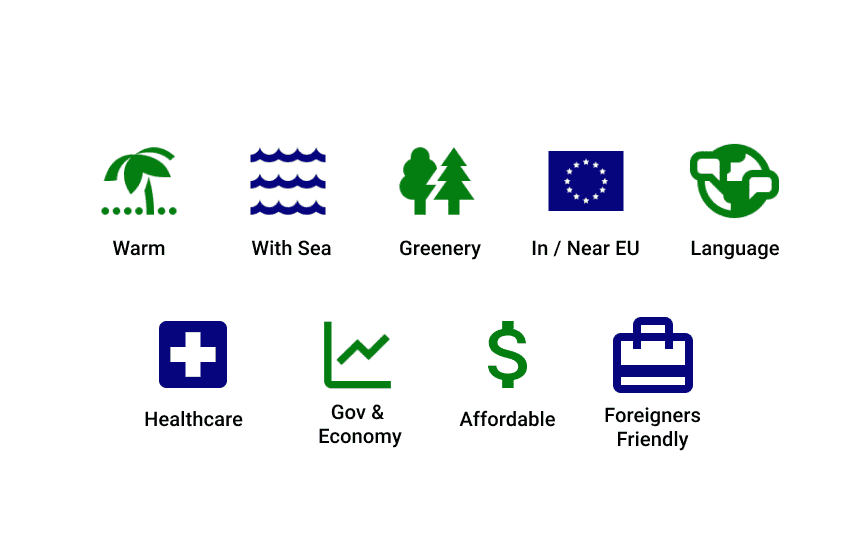
Having these criteria - we had a short-list of countries: Italy, Spain, Malta and we were also considering the South of France. After some more analysis - we were only left with Italy and Spain, and after some trips to Italy and then to Spain, we’ve decided that Spain is a better option for us. Italy was also a tempting option - we did a couple of great trips in various cities - but still Spain won us over.
- Spain’s economy was in a better shape (they recovered faster from the 2008 crisis) - after visiting some local IT meet-ups, we noticed that many participants were relocated Italians living in Spain (for a couple of years already).
- Spaniards were a bit more welcoming - i.e. our very first Airbnb host talked to us for an hour about IT projects, startups, life in Spain, etc (and we arrived at 11 pm, if I recall correctly). We liked
- There are many nice coastal cities where you’d be able to find affordable rent prices.
- Spanish is spoken in more countries, and we already had some experience while we lived in Peru and Mexico.
- We also noticed that Spain tries hard to develop the IT / Startup Scene (in Malaga, Valencia, Barcelona and Madrid, but also in other smaller places - Seville, Granada, Zaragoza, etc) - and we really liked that part.
So, we decided to settle in Spain.
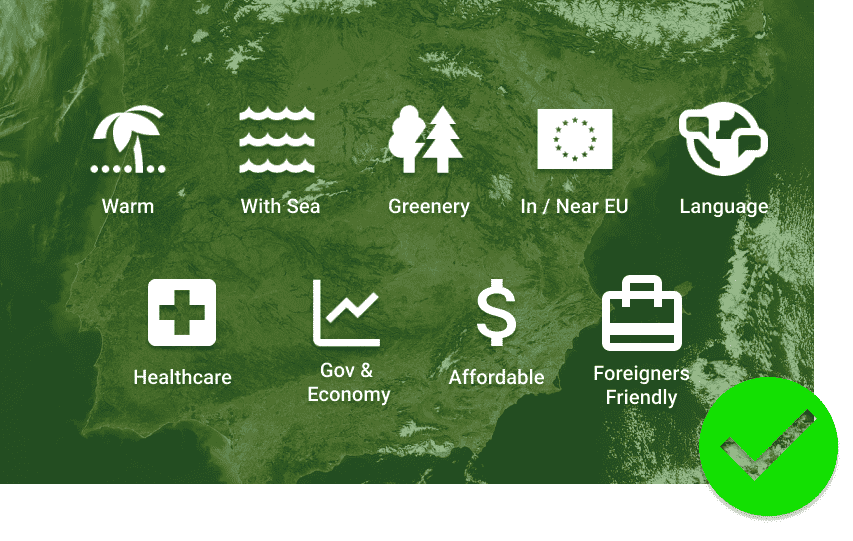
Malaga (or anywhere in Andalucia) - as an option
Initially we picked Malaga, Benalmadena (suburb of Malaga) - we lived there for ~4 years. Malaga is a small city of ~600 000 inhabitants. But it also features many sub-urban towns: Torremolinos (70k), Benalmadena (80k), Fuengirola, etc. - most of these are connected to Malaga through a pretty fast train-line (which passes through the airport) 🛫.

Malaga (and its suburbs) has a lot to offer:
- Tons of historical places - including some that are outside of the city;
- Coastal paths / boardwalks 🚶- with a ton of restaurants and cafes;
- Startup / IT investments 💻 - many co-working spaces opened in the last 4 years, there are also a bunch of pre-accelerators / accelerators / incubators, etc. Even Google promised to open a huge center for their Cybersecurity in Malaga;
- Option to rent an apartment (2 bedroom) for 650-700 euro - with a sea-view;
- Great weather - it has a LOT of sunny days 🌞, almost no rainy days, and it’s not SUPER hot in summer - the sea-breeze takes the heat away, so if you’re feeling too hot, just get in a shadow.
- Some (very few) bike lanes;
- Some (few) greenery / parks
Some things to consider if you pick Malaga:
- Don’t expect the sea to be warm - it’s only relatively warm in August-September, it flows from the Atlantic so normally it’s ice-cold. But like mentioned above, it has its perk - this helps to keep summers relatively cool.
- Fewer parks (and those that you’ll find, in the weekend will definitely be overcrowded); Fewer bike-lanes; Fewer amenities;
- Most apartments have a touristy layouts: small rooms, tiny kitchens, but almost all have balconies and great views;
- In the winter, most apartment buildings in the suburbs are empty - this can give it an eerie feel;
- In the summer, most city systems are under stress because of a huge influx of tourists - buses are overcrowded, garbage is full / overflowing - people end-up throwing things nearby creating HUGE piles of garbage, etc.
- It might feel too touristy (especially living in a suburb) - you see drunk tourists, fights, parties, etc.
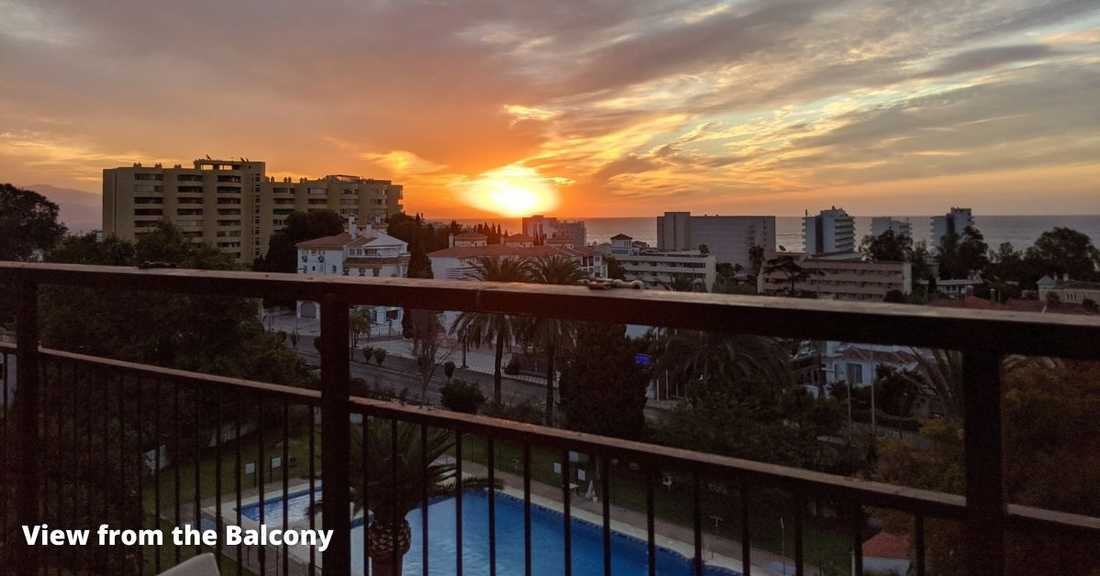
Andalucia also has other great options: Marbella, Seville, Granada or maybe even Cadiz. Each of these options has a different set of things to offer - i.e. Granada doesn’t offer any sea-views (as it’s in the mountains) but it has a LOT of greenery and amazing panoramic mountain views. Cadiz is the oldest city in Europe - it’s tightly packed, touristy and doesn’t offer a lot of greenery - but it’s packed with historical landmarks.
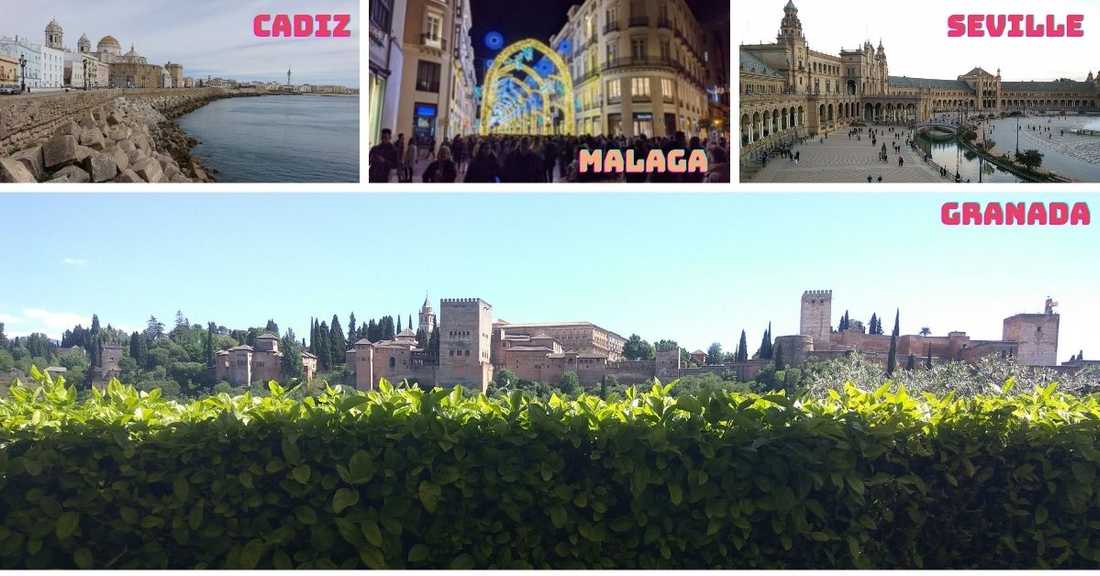
We like the fact that Spain has many relatively small cities, each with its features and character - there’s definitely a city you’d pick as your “Home”.
Valencia - a place we call “Home”
While browsing Idealista for apartments, we realized that we didn’t visit Valencia, and it offered relatively similar prices to what Malaga was offering - so we made a short trip and we fell in love with the city.
Valencia is the 3rd largest city in Spain, ~800 000 people live here (2nd biggest port ⚓ in the Mediterranean Sea).

Here’s the break-down of differences:
- Rent / apartment prices are similar to Malaga (you can find rent from 500 euro to 750 euro / month), but they are more family-oriented than tourist-oriented;
- Offers a ton of parks - greenery is everywhere. They have redirected the river Turia - that used to flow through the center of the city (and flood the city), and replaced it with a huge park that crosses the city diagonally - it’s actually a collection of parks, it breaks down into ~16-18 sections:
![parks of valencia]()
But other than the Turia parks, there are many other smaller parks (smaller than Turia but still huge) - and that’s great!
Note: the map above doesn't include all the parks - for some reason some parks are still Gray on the Google Maps, while Open Street Maps (or other alternatives depict them as green patches). - Offers a lot of bike-lanes - ~160km of bike-lanes allow you to get anywhere in the city.
![Bicycle Map of Valencia]()
- IT / Startup Scene is more alive / active - a lot of various art workshops, coworking spaces, accelerators, etc.
- More international than Malaga, yet less touristy - I know, Malaga also has a ton of foreigners living there, but the vibe is different. In various cafes in Valencia you can hear a mix of: spanish, valencian, english, german, russian, ukrainian, etc. But most of the people are not ‘passing by’, but live here, actively participate in the local economy, create projects together, etc (or so it seems) 😀
- It has multiple metro lines - simplifies transportation, especially if you don’t have a car and rely on the bicycle.
![Metro Map of Valencia]()
- Weather here is different than in Malaga, it gets way more hot (we had 43-44C in summer, while in Malaga it was maximum 36-38C) and more humid (humidity can reach 80-90% here). It also rains way more than it did in Malaga.
- The sea is warmer than in Malaga (or is warmer more months);
- Airport is smaller than the one in Malaga, but also offers a lot of options.
Valencia also has a big thing that Malaga doesn’t have (not sure if that’s a plus or a minus, it depends on you) - a huge festival called Fallas - it’s a 3-4 week long festival, where various regions of the city create over 500 huge statues (Fallas) that represent different themes. Then, on the final day of the festival, they burn them all down, right there, in the streets of the city.
I’ve been asking many people about Fallas and the attitude is split - some embrace the festival and are enjoying it - others flee the city for 1-2 weeks, to get away from the noise and explosions. What explosions? 🧨 🎆 Here are some examples:
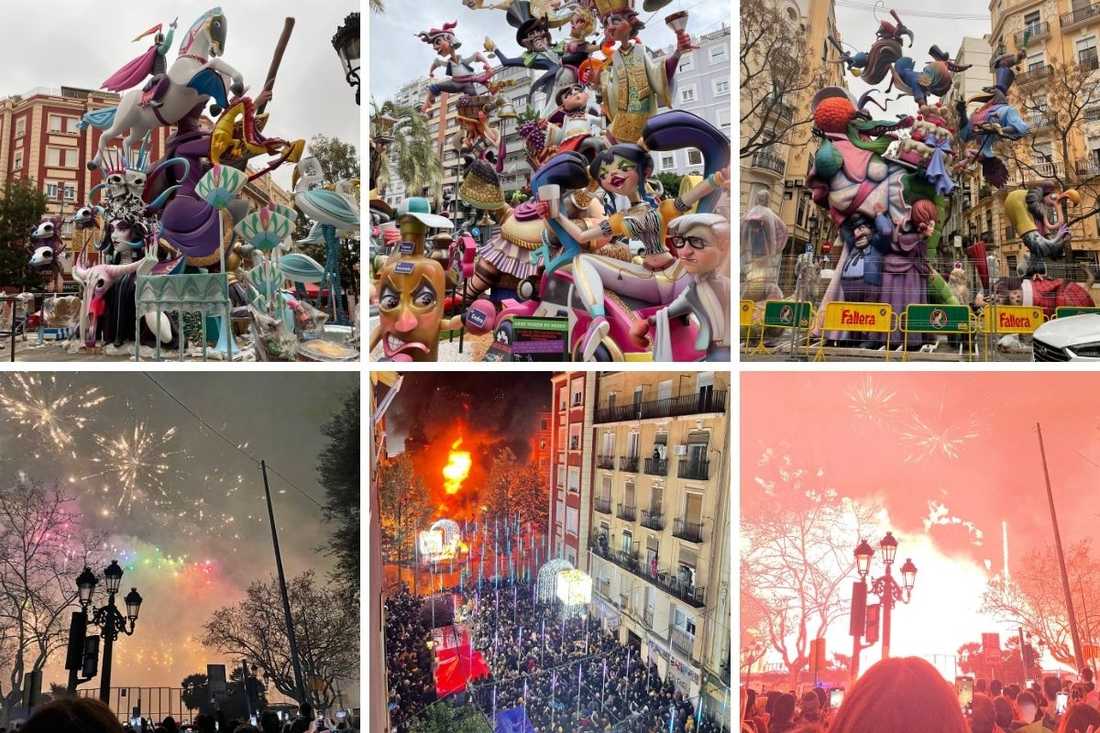
What’s the budget? 💵
Ah, let’s get down to it - for a comfortable life - for 2 people, amounts to ~2 200 euro / month:
- Rent is around 500 euro (studio?) - 800 euro (4 bedroom apartment) - use https://www.idealista.com/ or https://www.fotocasa.es/es/ - to browse for available options. For a comfy life I’ll consider - 750 euro.
- Internet: home fiber-optic + 2 SIM cards (calls + 10 GB / person) ~ 50 euro / month
- Food & small things: ~600 euro (for 2)
- Private Medical Insurance: 120 euro (for 2)
- Utilities (depend on usage / month, but on average): 30 euro water, 40 euro electricity, 30 euro gas = ~100 euro / month (for 2)
- Restaurants / Cafes - 200 euro
- Personal expenses - 100 euro
- Mix / random things - 200 euro
If you’re really on a budget, you’d be able to minimize this a bit to ~1 650 euro / month:
- Rent for 550-600 euro;
- Internet: home fiber-optic + 2 SIM cards (calls + 10 GB / person) ~ 50 euro / month
- Food & small things: 500 euro (for 2)
- Private Medical Insurance: 120 euro (for 2)
- Utilities (depend on usage / month, but on average): 30 euro water, 40 euro electricity, 30 euro gas = ~100 euro / month (for 2)
- Restaurants / Cafes - 100 euro
- Personal expenses - 50 euro
- Mix / random things - 100 euro
Being a remote worker / IT professional - even with a salary paid from Moldova or Ukraine - you should be able to have a comfortable life in Valencia (and a left-over for the Savings account).
Where to look for an apartment? 🏘
It depends on your budget - better neighborhoods have higher prices, obviously. There are also exceptions: relatively cheap neighborhoods that can have fancy / expensive parts. Normally you’ll need to come here and visit these regions yourself, so you know what’s the best option for you.
But for me, the map looks like this:
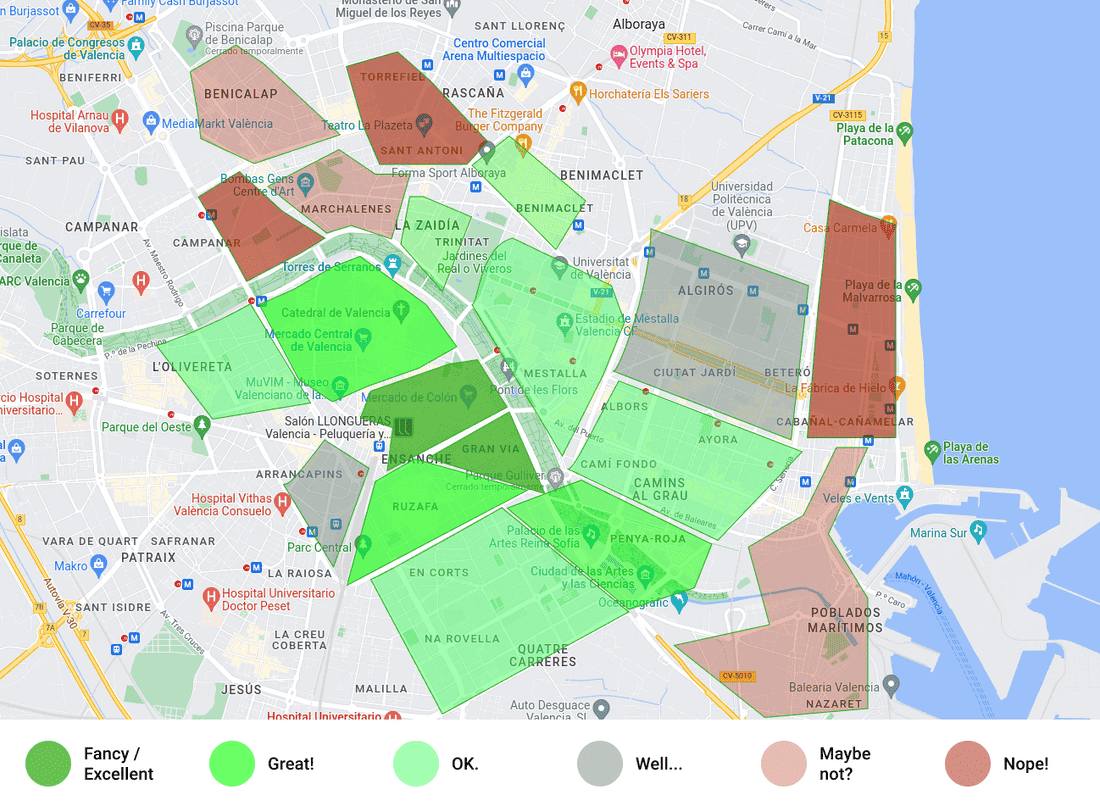
Pair this map with idealista to find your apartment.
Map Note: all the Excellent / Great regions can have shady blocks and vice versa, the red regions can have excellent blocks - the map thrown above is just an approximation. Also - we haven’t been to all the barrios (nor we analyzed existing ones in super-details) - so take this subjective map just as a reference.
Note: when renting an apartment, agencies will want the following:
- A copy of a work contract - proof that you make enough money. Freelance contracts won’t work, as they don’t give them any assurance.
- Pay agency fee and potentially 1 or 2 months deposit for the apartment (yes, that hurts!). If you find a 600 euro apartment, you’ll need to have 3x or 4x amount of money: 1x for the agency, 1x for the current month, 1x (or 2x) deposit.
Taxes? Freelancers? Work? 🏛
Eh, it’s complicated. Normally you’d have to contact a professional for a consultancy - for 50 euro or so, they will explain you all the details, but here are the basics:
- One can not know the exact % of taxes - they (Spanish IRS) use a complicated formula that takes into account a lot of things - and spits out a %. Usually it’s around 20-28% - it depends on how much money you make.
- If you want to be registered as a freelancer - you’ll need to pay ~350 euro / month, this is the social contribution and covers pension fund and the state-sponsored medical insurance (and many other things). Many regions offer a discount for the first 1-2 years - so you actually start with 50 euro / month, but it slowly grows to 300-350 euro / month.
- Accounting - if you’re a freelancer, you can use a service similar to Abaq (referral code for discount: V2YC9VMC). If you’re a full-time employee - you can declare taxes on your own, local governments even have people to help you out filling it up - or you can hire an accountant that for 50-100 euro can file your taxes for you.
- Opening a company - in our experience - was a paaain. We spent almost 1 year to open a company. If it’s a startup you’re opening, keep in mind - to keep it “open” / “operational” - you need to have an administrator / director in the company - and pay 350 euro / month (social contributions) - even if the person has 0 euro salary and the company makes 0 euro / month.

From my personal experience - finding a full-time remote position is the best case scenario. Renting apartments becomes much easier (because you’ll have a full-time employment contract), taking loans or mortgages now is doable, paying taxes is also simpler.
But, considering you’re not moving to Valencia alone (hopefully), but with a partner - you can have a mix of full-time contract and the other person can be as a freelancer - so you get the best of both worlds.
Ukraine support 🇺🇦
There are various organizations that are helping Ukrainians with the documentation, accommodation and food. Here are some useful links that I gathered - to get you started:
Useful Links for Valencia.

There are also governmental sponsored shelters and volunteer-supported centers such as this one: https://www.facebook.com/groups/502912041232899 (featured posts have the location details).
If you’re working in IT - you can find various IT communities on meetup.com - Open Source frameworks & tools (Drupal, Wordpress, etc), crypto / web3.0, digital nomads, AI, DevOps, Cloud (AWS, Google), etc - not all of these are in English, but most are open and inviting for internationals.
If I missed anything, or you need any tips / help - please use the comment section down below! 👇 Thanks!
💡 Inspired by this article?
If you found this article helpful and want to discuss your specific needs, I'd love to help! Whether you need personal guidance or are looking for professional services for your business, I'm here to assist.
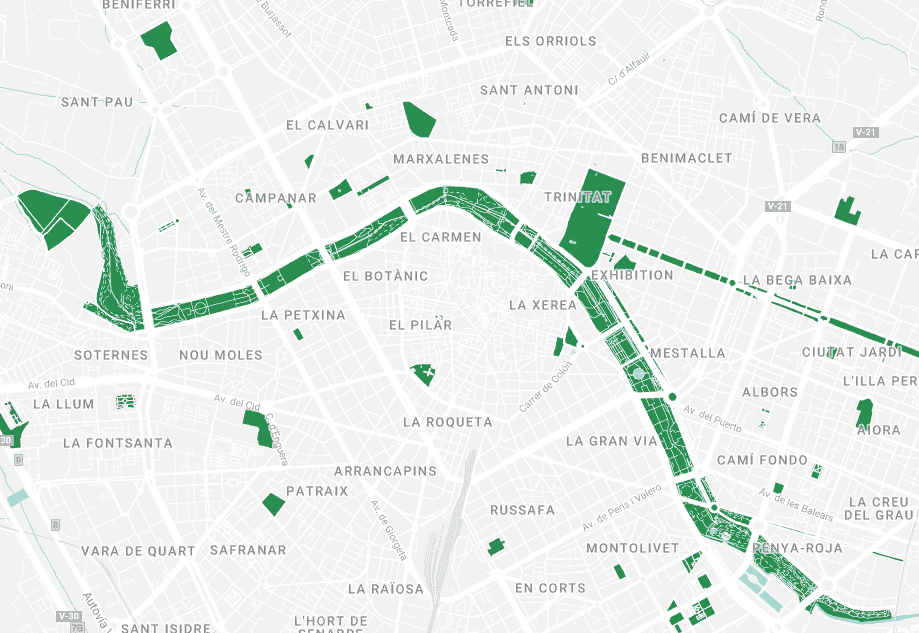
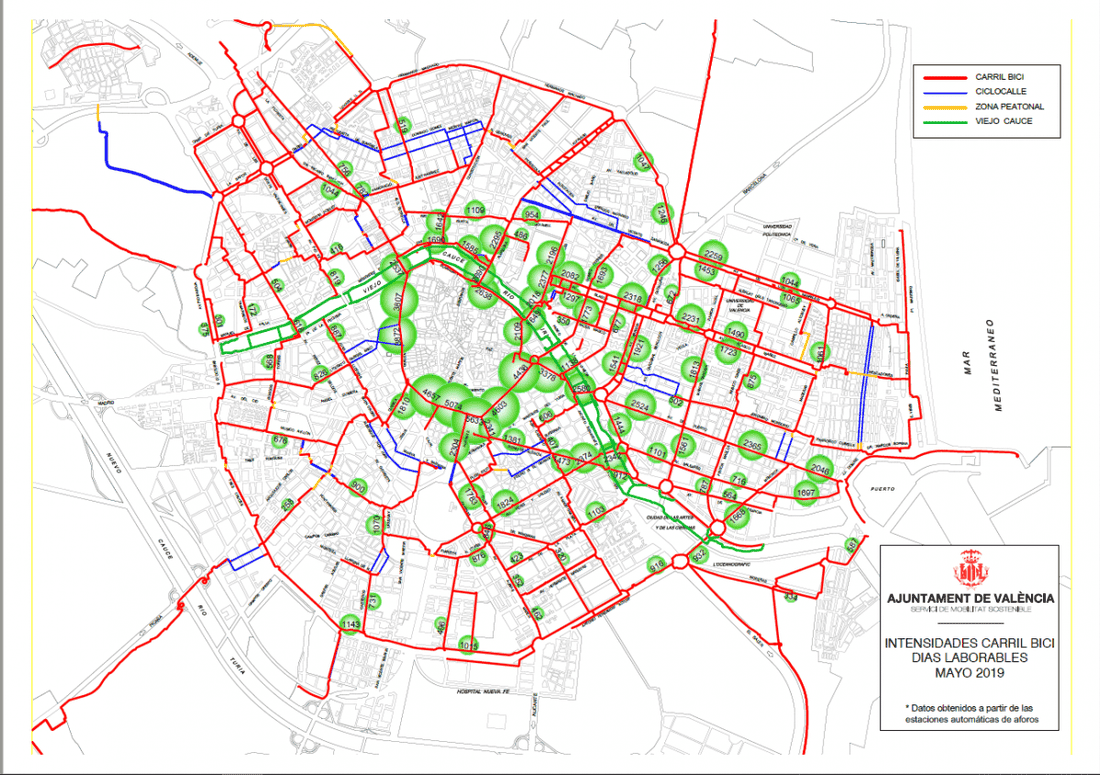
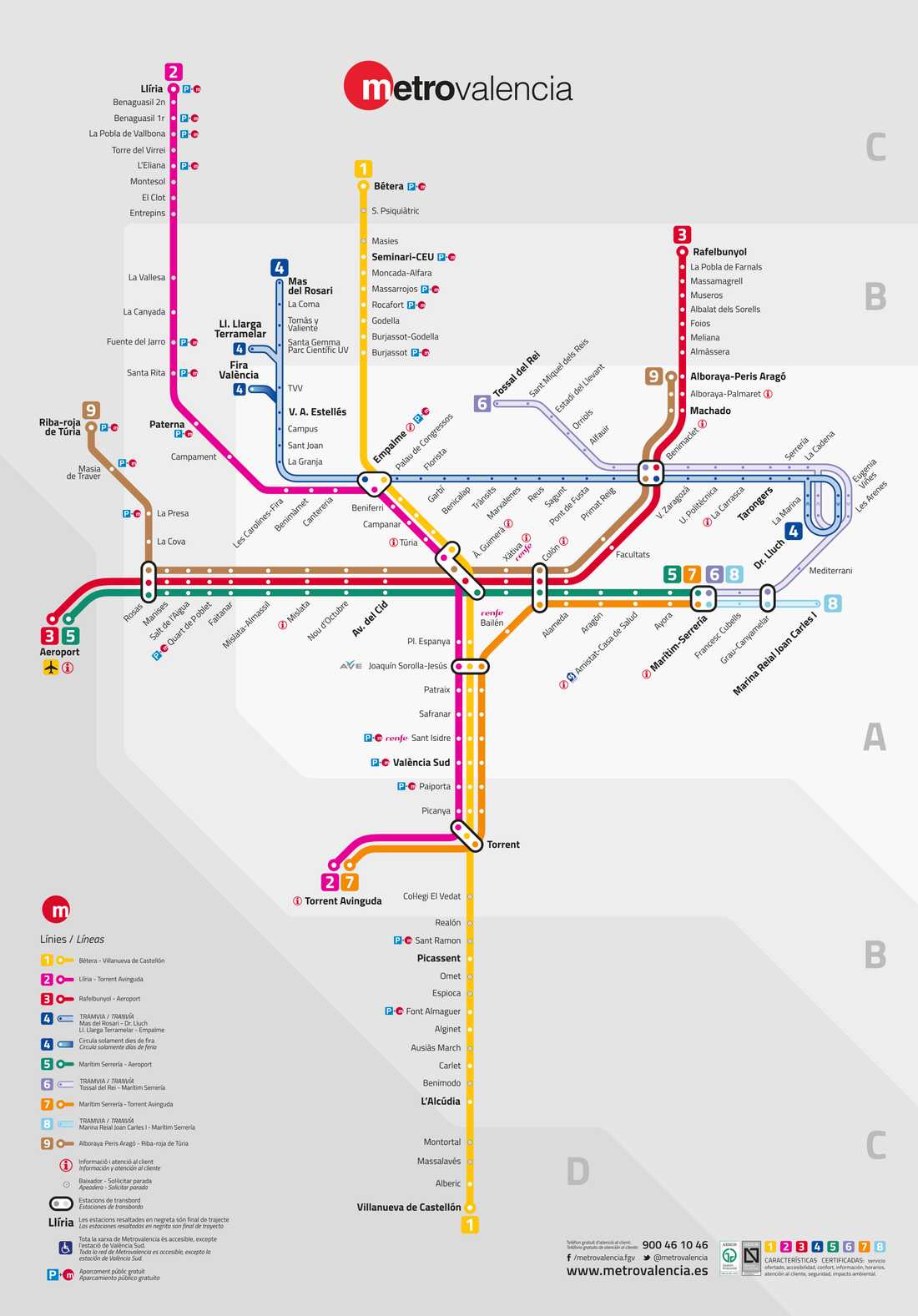
Comments:
Feel free to ask any question / or share any suggestion!